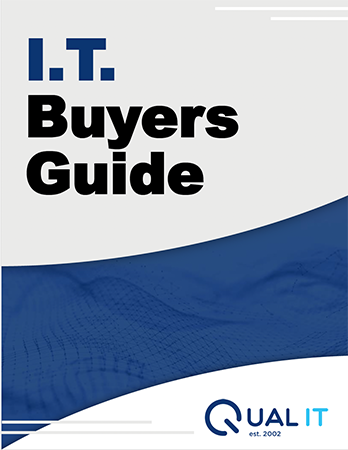
Salt Lake City CPAs Are Leaning Into AI—But Are You Exposing Your Clients in the Process?
From ChatGPT to Microsoft Copilot, artificial intelligence is becoming a staple in the accounting workflow. It’s helping Salt Lake City firms write reports, clean up emails, summarize client meetings, and speed up spreadsheet work. Sounds like a win, right?
Here’s the problem: If your team is using public AI tools without guardrails, you could be training those platforms with sensitive client data—and inviting a major cybersecurity threat into your firm.
At Qual IT, we specialize in managed IT services for CPA firms in Salt Lake City, and this is one of the fastest-growing risks we’re seeing.
What’s the Risk? Data Sharing Without Realizing It
The problem isn’t AI itself—it’s how your staff is using it.
Let’s say one of your junior accountants pastes a full set of client financials into ChatGPT to “help draft a summary.” Without knowing it, they may have just uploaded private client data into an open model. These platforms often store or learn from that input, meaning confidential information could be used to train future responses.
In 2023, Samsung engineers made that exact mistake—accidentally leaking internal source code into ChatGPT. It became such a nightmare that Samsung banned the use of public AI tools altogether.
Imagine the same mistake happening in your office, just weeks before a tax deadline.
A New Kind of Attack: Prompt Injection
Even more dangerous? Hackers have figured out how to exploit AI tools using a method called “prompt injection.”
They embed malicious instructions inside things your team might interact with daily—emails, transcripts, YouTube captions, even PDFs. The moment an AI tool processes that file, it can be tricked into revealing private data or carrying out unintended actions.
Think of it like phishing, but your AI is the one clicking the link.
Why Salt Lake City CPA Firms Are Especially Vulnerable
Most accounting firms don’t yet have internal policies on AI use. Staff members adopt tools like ChatGPT or Gemini on their own, with the best of intentions—but without understanding the risks.
And here's the kicker: Many CPAs still treat AI like a smarter Google search bar. They don’t realize that what gets pasted in could be stored or exposed down the road.
The danger isn’t theoretical. For firms handling 1099s, tax returns, and audit prep, IT security and data compliance aren’t optional—they’re legally required.
And right now? Too many Salt Lake City CPA firms are flying blind.
What You Can Do Right Now
You don’t need to ditch AI altogether. You just need to get in front of it.
Here’s what we recommend for Salt Lake City firms serious about IT governance and regulatory security:
- Build an AI Usage Policy
Document which tools are approved, what data can’t be shared, and who your team should contact with questions.
- Train Your Staff
Educate your team on what “prompt injection” is and how to recognize the risks of using public AI tools in the accounting workflow.
- Use Secure, Business-Grade Platforms
Stick to enterprise-level tools like Microsoft Copilot, which offer better control over data privacy and compliance.
- Monitor AI Use Across Devices
Track which tools are being used on firm laptops and workstations. Consider blocking public AI apps on work machines if necessary.
Don’t Let AI Become Your Weakest Link
Look, artificial intelligence is here to stay. If you get ahead of it now, you can use it to boost productivity without exposing your clients—or your reputation—to unnecessary risk.
But if you let AI run unchecked? You’re one copy-paste away from a data breach.
At Qual IT, we help Salt Lake City CPA firms build cloud-based security, endpoint protection, and network policies that keep you compliant and protected—without slowing your team down.
Don’t Wait for a Mistake to Make the Headlines
Click here to book your FREE Network Assessment with Qual IT today.
We’ll help you build a secure, CPA-compliant AI policy—and give your firm the tech tools to stay ahead of tomorrow’s threats.



